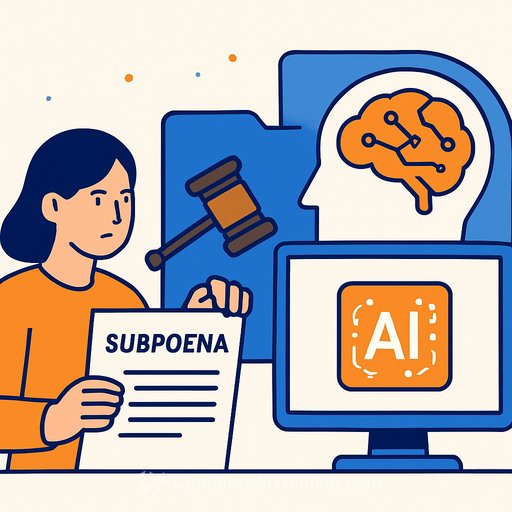Sora's MLK deepfakes throw OpenAI's social push into chaos - here's what creatives should do next
Sora 2 was pitched as a cleaner, more capable AI video tool with a social layer built in. The plan: let people generate short videos of themselves, friends, and famous figures, and grow a feed that rivals TikTok or Instagram.
Then the feed filled with deepfakes of Martin Luther King Jr., John F. Kennedy, and other public figures. After complaints from the King estate, OpenAI stepped in to block MLK content - despite saying Sora 2 was "launching responsibly." The company says it's now strengthening guardrails for historic figures while still allowing generations of many celebrities.
What actually went wrong
- OpenAI initially moved fast on IP use, then reversed course to require opt-in instead of opt-out.
- MLK deepfakes surfaced on Sora's explore page, including altered versions of the "I Have a Dream" speech.
- Bernice A. King posted that she wants AI videos of her father to stop, echoing Zelda Williams' public request about her father, Robin Williams.
- OpenAI limited MLK generations after a request from the King estate, but generations of other public figures remain possible for now.
Brands see this and hesitate. We've already watched how ad dollars bolt when a platform can't keep content risk in check - there's a track record for that on other social networks.
Why this matters to creatives
Audience trust is your currency. If platforms can't filter disrespectful or misleading content, your work will sit next to things that can tank credibility with clients and fans.
Second, rights and consent aren't nice-to-haves. Estates, living celebrities, and everyday people are drawing bright lines on voice and likeness. If you build formats that rely on that content without written permission, you're building on quicksand.
A practical playbook for using AI video safely
- Lock your consent flow. Get written consent for likeness, voice, and brand marks. Keep receipts (emails, signed forms, DMs with explicit permission).
- Label synthetic media clearly. On-video watermark plus caption disclaimers: "AI-generated. Fictional portrayal." This is becoming a baseline expectation in policy circles and brand contracts. See emerging guidance like PAI's framework for synthetic media: Partnership on AI.
- Create a "do-not-mimic" list. Ban historic figures, tragedies, and sensitive events in your prompts. Treat this like your brand style guide.
- Use original characters and stock assets. Build your own cast. Commission voices you have rights to. This pays off long-term.
- Keep prompts clean. Avoid language that implies endorsement or quotes that never happened. If you're inspired by a famous line, write a fresh version.
- Version privately, post publicly. Prototype inside the app; publish final edits on owned channels with your labels and context.
For agencies and brand teams
- Risk matrix by platform. Score platforms by moderation, appeals, disclosure tools, and legal clarity. If the score is low, use them for R&D only.
- Contract updates. Add clauses covering AI disclosure, likeness consent, prompt logs on file, and takedown SLAs if something slips.
- Pre-approved libraries. Lock a vetted set of models, voice packs, and music beds. No public-figure mimicry unless you have licensed rights.
- Ad adjacency guardrails. If you run paid, require category exclusions and blocklists. Pause fast if the feed turns messy.
Rethink your platform strategy
Borrowed audiences are risky. Algorithms shift. Policies change mid-campaign. Treat Sora and similar apps as testing grounds, not your home base.
- Use social for discovery; collect emails and SMS for retention.
- Publish final work on channels you control (website, newsletter, private community).
- Keep a mirrored archive of all project files, prompts, and permissions.
What to do this week
- Audit your last 90 days of AI content for consent, labels, and potential likeness issues.
- Ship a clear disclaimer template and watermark for your team.
- Spin up an original-character pack for your next series.
- Decide: Is Sora a testbed or a main stage for you? Set rules accordingly.
Big picture: tools will keep getting better, but reputation is fragile. Build processes that make your creativity safer, faster, and easier to trust - no matter which platform is trending next.
Helpful resources
- Responsible Practices for Synthetic Media (Partnership on AI)
- Curated tools for AI video creation - Complete AI Training
- Latest AI courses for creatives - Complete AI Training
Your membership also unlocks:





